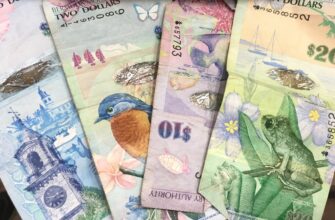## Introduction: Navigating Thailand’s NFT Tax LandscapennAs Non-Fungible Tokens (NFTs) explode in popularity, Thai investors and creators are discovering profitable opportunities in the digital asset space. However, with profits come tax responsibilities. Understanding how Thailand’s Revenue Department treats NFT transactions is crucial to avoid penalties. This comprehensive guide breaks down everything you need to know about paying taxes on NFT profits in Thailand, from legal frameworks to filing procedures.nn## Are NFT Profits Taxable in Thailand?nnYes. Thailand’s Revenue Department categorizes NFT profits as **assessable income** under Section 40 of the Revenue Code. Whether you’re an artist minting NFTs, a trader flipping digital collectibles, or an investor earning royalties, profits are subject to taxation. Key principles include:nn- **Residency Rules**: Thai tax residents (staying ≥180 days/year) pay taxes on worldwide NFT income. Non-residents pay only on Thai-sourced income.n- **Tax Triggers**: Selling NFTs for profit, earning secondary royalties, or exchanging NFTs for other assets (including crypto) can create tax liabilities.n- **Exemptions**: Personal NFT creations sold below ฿60,000/year may qualify for SME exemptions (consult a tax advisor).nn## How Thailand Taxes Different NFT Activitiesnn### 1. NFT Trading ProfitsnnClassified as **capital gains** or **business income** depending on frequency:nn- Occasional traders: Gains added to annual income, taxed at progressive rates (5%-35%)n- Professional traders: Treated as business income, subject to 0.5%-3% local taxes plus personal income taxnn### 2. NFT Royalty IncomennRecurring royalties from secondary sales are taxed as **service income** at standard progressive rates.nn### 3. NFT Mining/CreationnnArtists and creators must report:nn- Income from initial NFT salesn- Deductions for creation costs (platform fees, gas fees, software)nn## Step-by-Step: Calculating & Paying NFT Taxes in ThailandnnFollow this 5-step process for compliance:nn1. **Track All Transactions**: Log dates, values in THB (converted at transaction time), fees, and counterparty details.n2. **Categorize Income**: Separate trading profits, royalties, and creation income.n3. **Calculate Net Profit**:n – Sale Price (in THB) – Acquisition Cost – Platform/Gas Fees = Taxable Profitn4. **File Tax Returns**:n – **PND 90/91**: For individuals (March filing deadline)n – **PND 50**: For registered businessesn5. **Pay Taxes**: Via bank transfer, Revenue Department branches, or online portals.nn## Essential Record-Keeping PracticesnnMaintain these records for 5+ years:nn- Wallet addresses and transaction IDsn- Dated screenshots of sales/purchasesn- Exchange rate records (THB conversion at transaction time)n- Receipts for deductible expensesn- Royalty payment statementsnn## 4 Costly NFT Tax Mistakes to Avoidnn- **Ignoring Small Transactions**: Every profitable trade is taxable, regardless of amount.n- **Forgetting Gas Fees**: These reduce taxable profits when properly documented.n- **Miscalculating Cost Basis**: Include minting costs and acquisition expenses in your calculations.n- **Using Current Exchange Rates**: Convert crypto/NFT values to THB **at transaction time**, not when filing.nn## Frequently Asked Questions (FAQs)nn### Do I pay taxes if I sell NFTs at a loss?nnLosses can offset NFT profits within the same tax year but aren’t refundable. Document losses carefully for deduction claims.nn### How are NFT-to-crypto trades taxed?nnTrading NFTs for cryptocurrency is a **taxable event**. You must calculate profit/loss based on the NFT’s THB value at trade execution.nn### Are foreign NFT platforms subject to Thai taxes?nnYes. Income from overseas platforms (OpenSea, Rarible) is taxable if you’re a Thai resident. Report earnings in annual filings.nn### What penalties apply for non-compliance?nnFailure to report NFT income may result in:nn- 1.5% monthly interest on unpaid taxesn- Fines up to 200% of evaded taxn- Criminal charges for severe casesnn## Conclusion: Staying Compliant in Thailand’s NFT MarketnnWith Thailand’s digital asset regulations evolving rapidly, proactive tax planning is essential for NFT participants. While this guide outlines key principles, always consult a Thai tax professional for personalized advice. Keep meticulous records, understand your income categories, and file accurately to capitalize on Thailand’s NFT boom without legal repercussions. Remember: Tax obligations apply whether profits come from JPEGs, virtual land, or blockchain gaming assets.








